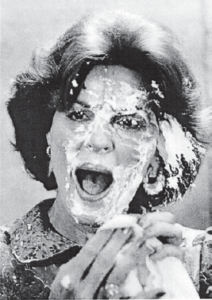![]()
Aloha: A warm welcome and a fond farewell. An essence of being—with love, peace, compassion, and mutual respect. A way of living in harmony with the people and land around us with mercy, sympathy, grace, and kindness. Aloha to this September’s Hawaiian History Month.
This month my people are hurting. The deadliest wildfire in Hawai’i’s history just devastated the town of Lāhainā on Maui, the historic town that served as the first capital of the Hawaiian Kingdom. This was the deadliest wildfire in the United States in a century. At least 115 people have been killed.
Hundreds are still missing and unaccounted for. The land search for survivors was completed on Aug. 28 and survivors are no longer expected. The suffering is incomprehensible. Suffering that now stacks on top of the Hawaiian peoples’ continued suffering from the illegal occupation of their land.
‘Āina Momona, an organization dedicated to achieving environmental health and sustainability through social justice and the de-occupying of Hawaiian lands, recently shared a YouTube video titled “Pa’a Ke Aupuni The Reel History of Hawai’i”. This hour-long video is essential viewing for anyone with an interest in Hawai’i, history, or humanity. Deepening my knowledge of the land from which my ancestors hail was a healing act.
The story of Hawai’i is full of awe, brilliance, and pride. Early Hawaiians developed a sophisticated navigation system using the stars, currents, and winds to traverse the Pacific Ocean. They were experts in engineering and food production. By the mid-1800s, nearly 100% of Hawaiians could read and write making Hawai’i one of the most literate countries in the world.
Hawai’i became the first non-European country to join the Family of Nations, which inspired other countries to secure their internationally recognized sovereignty. Hawaiians were so advanced that their ‘Iolani Palace was outfitted with electric lights in 1882, years before the White House would receive those amenities. Hula and Hawaiian music are important in communities around the world to this day.
Hawai’i’s story is also a sad story of the horrors of capitalism and colonialism, one of a peaceful, sovereign nation overthrown by US military-backed businessmen who were greedy for profit. So greedy, they formed a political party, spread fake news, illegally overthrew the Hawaiian government, defied the US government, and declared themselves the new Hawaiian government without the approval of Hawaiians. To boost their profits in the sugar business, those businessmen colluded with the US government to colonize Hawai’i.
A recent conversation with my Uncle Jonli reminded me that this history is not so far away. Four generations ago my ancestors lived through the overthrow. Just three generations back, my nana witnessed the passing of Queen Lili’uokalani, Hawai’i’s last monarch, whose Sept. 2 birthday inspired Hawaiian History Month.
This history grounds me in the necessity of spreading the truth and learning from our elders. Indigenous peoples and our cultures depend on it.
During Hawaiian History Month we acknowledge that the same greed that fell the Hawaiian Kingdom has just destroyed Lāhainā and its people. The dry conditions that set the stage for the wildfire were a direct result of “centuries of water diversion, greed, and land mismanagement by companies like West Maui Land Co.,” according to ‘Āina Momona.
Maui County has sued Hawaiian Electric Company for failing to de-energize their power lines after red-flag warnings. Their electrified power lines were blown over by the winds, which helped the wildfire spread at a rapid pace. Human caused climate change played an undeniable role in creating the drought, dry conditions and winds that fueled this wildfire.
The government failed to adequately care for the people in the aftermath of the wildfire. Instead, emergency relief was successfully led and executed by Maui community members who stepped up in the state’s absence. Their strength, compassion and mutual aid remind us that only we can keep us safe, that any hope for survival lies in the power of the people.
The movement for Hawaiian sovereignty is part of a larger struggle for collective liberation. Among many things, the Lāhainā tragedy is a plea for the revolutionary politics the struggle requires. Politics to move us beyond capitalism and into socialism. Beyond police, prisons, and private property and into freedom.
A socialism based on direct democracy where people can choose to live without monarchs, presidents, or rulers altogether. Where everyone affected by a decision has the opportunity to have a say in making that decision.
A world where goods are produced according to need, not profit. Where land is returned to its original stewards so they can collectively care for it once again. A world guided by indigenous values like generosity, cooperation, community, reciprocity…and aloha.
Visit hawaiiponoi.info to learn more about Hawaiian History Month. To support the wildfire victims and the movement for Hawaiian sovereignty, go to ‘Aina Momona.
Steven Marquardt is an educator and organizer based in Olympia. This article first appeared on Common Dreams.

Be First to Comment